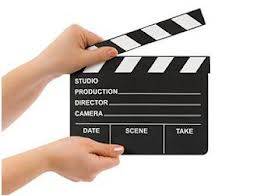Blog
Home » Blogs » admin's blog
Home » Blogs » admin's blog
How to plan your video
Like most projects, the hardest part is where to start. This post will provide you a helping hand on the basics of how to plan your video. If anything I hope it gives you some direction on how to work with your videographer.
Introduction
Planning is the one area many video production companies state as important, but in fact do not spend enough time on and do not document the discussions.
The simple reason is, in many cases this is not communicated as taking up at least 1/3rd of the time to produce a video for fear the customer does not see the value or get scared about the time
involved. A good videographer will break all elements down so it is not seen as a daunting task, and will do most of the work for the client.
Without planning and having the client signoff on the plan the result is poor execution and unmet expectations.
As a single piece of advice before starting the process, “keep it simple to minimalise complexity” to meet your objective and communicate your message. If the message is too complicated or surrounded by non core features you will detract from your message.
I have used a scenario where the video is filmed at a location, but the same process will be followed using a studio or green screen environment.
Know your Goals – what are you trying to achieve?
Some questions:
What is the motivation? What is the objective? Why are we making this video? Who is the primary audience? Who is the secondary audience? How will we present the video, on the web, tradeshows, both? What do you want people to do after they've seen this video?
Budget
Your budget will affect your return. Therefore be upfront with your budget so you can work with your video producer. They may need to rent props, special equipment or hire actors or models. With a budget you will provide a baseline and encourage creative alternatives and suggestions. You, very much, get what you pay for. Do not forget the video is your businesses face.
Decide on a schedule
When do want to shoot? Where you want to shoot - weather may be an issue,so decide how to handle this? When must the video be edited and complete?
Take into consideration there is a review process to include and depending on the length and number of scenes, and effects involved the period of time to create the video will vary dramatically.
A clear definition of time will be able to be determined after the concept and story board stages are complete.
Decide on the Concept
Where do you want the video shoot to take place? Whom/what do you want to feature in the video? Why? How do you want to depict your concept? Is there any mood or feeling of belonging you want to convey? Will there be voice and sound at the scene, will it be dubbed, will there be subtitles or animations? Will there be background music.
Storyboard each scene
Agree whether your video will be a story, product explanation, interview etc. Work with your video producer to come up with rough scenes and scenarios.
Storyboard elements
Write all your ideas down on paper or on a chalkboard. Brainstorm, write a script. Determine what elements (shots, interviews, props, people ) are critical to the story—and what would be nice to have. This will help you focus your attention on the task at hand and give you a better idea of what to capture when you set up the shoot. You will also take into consideration what is possible with your budget.
This element can be done with the client or by the videographer and presented as an idea.
Locations
Consider suitable locations and whether you require sundown/sunrise scenes, private setting or populated settings.
In some cases you will require permission or a permit to video a scene and therefore permits or letters of authority will be required. This is not an easy and can be a bureaucratic process in some cases, as we have experienced with the Bangkok Sky Train Operators (BTS).
Now you have the locations agreed, sketch each scene along with the shots and angles you want, decide the length of each scene and present to the camera crew.
Shoot The Video
Follow the plans you have made so expectations are met, and shoot more footage than required.
Expect that there will be multiple retakes at different angles or to compensate for mistakes, light, external noises etc.
Produce the video - Post editing
This certainly an area where you have to have the skills. There is a lot involved, including framing, transitions, colour correction, music and sound incorporation, graphic design and special effects. Therefore if you want something professional looking I would suggest you outsource this, or try yourself using a very basic video editor.
Distribution
There is no point in making a video if no one watches it. Therefore you may want to insert it in your website, social media, Youtube page etc, but promote it, do not just post it.
There are many distribution methods and techniques to boost your views. However tht is for another time.
The result of effective planning:
You know the goal. You the budget required. You plan the story and have a strong, well-thought-out concept before you start production. In the end, you know that our success has everything to do with our planning.
I hope you have found this useful.
